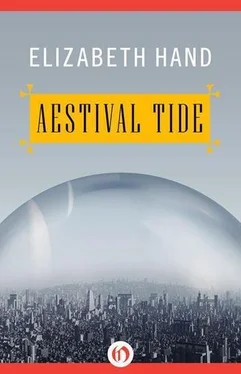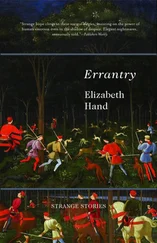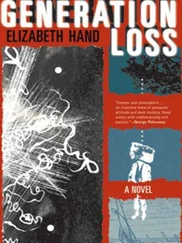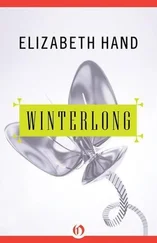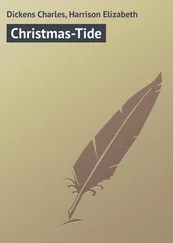Elizabeth Hand - Æstival Tide
Здесь есть возможность читать онлайн «Elizabeth Hand - Æstival Tide» весь текст электронной книги совершенно бесплатно (целиком полную версию без сокращений). В некоторых случаях можно слушать аудио, скачать через торрент в формате fb2 и присутствует краткое содержание. Жанр: Фантастика и фэнтези, на английском языке. Описание произведения, (предисловие) а так же отзывы посетителей доступны на портале библиотеки ЛибКат.
- Название:Æstival Tide
- Автор:
- Жанр:
- Год:неизвестен
- ISBN:нет данных
- Рейтинг книги:3 / 5. Голосов: 1
-
Избранное:Добавить в избранное
- Отзывы:
-
Ваша оценка:
- 60
- 1
- 2
- 3
- 4
- 5
Æstival Tide: краткое содержание, описание и аннотация
Предлагаем к чтению аннотацию, описание, краткое содержание или предисловие (зависит от того, что написал сам автор книги «Æstival Tide»). Если вы не нашли необходимую информацию о книге — напишите в комментариях, мы постараемся отыскать её.
Philip K Dick Award (nominee)
Æstival Tide — читать онлайн бесплатно полную книгу (весь текст) целиком
Ниже представлен текст книги, разбитый по страницам. Система сохранения места последней прочитанной страницы, позволяет с удобством читать онлайн бесплатно книгу «Æstival Tide», без необходимости каждый раз заново искать на чём Вы остановились. Поставьте закладку, и сможете в любой момент перейти на страницу, на которой закончили чтение.
Интервал:
Закладка:
“Damn!” Reive glared at the cormorant eyeing her balefully from its new perch. He might stay submerged for hours now. “Zalophus,” she cried; then more loudly, “ Zalophus!”
Nothing happened. The surface of the pool grew calm. Very faintly she could hear clickings and a deep brooding moan as the monstrous creature called out to sea, the constant and futile effort he had engaged in for centuries, seeking others of his kind.
But there were no others. There really never had been. He was the first of the hydrapithecenes, the very first of all the geneslaves bioengineered during the Second Ascension; the most grotesque of all the Ascendants’ creations, and the most useless. The aardmen had been engineered as slaves, combining canine servility with human cunning and cruelty. They were guardians and gladiators, fighting human men and women for the pleasure of the Orsinate, who loved to gamble. Of the other geneslaves, the swanlike argalæ had been bred for their beauty: limbs so long and slender they snapped during lovemaking, breasts that were never meant to suckle, feeble wings that would never take flight. They had a mad witless gaze, shallow rib cages that barely contained their lungs, tiny white teeth useless for anything but lovebites. Once Reive had accidently killed one, during an orgy in Âziz’s private chambers. She had wept, because the argalæ were beautiful: the Ascendants’ opium dream of the ideal partner, slender and childlike and utterly dispensable. And the rasas were simply a solution to the problem of Araboth’s dwindling population. Too many centuries of inbreeding on the upper levels; too many genetic mutations among the slaves brought back from the wars. So within their cruel alembics the Orsinate distilled a life essence, and with it infused the corpses carried daily into the Chambers of Mercy by yellow-robed coenobites. Thus the Orsinate could continue to vent their murderous caprices upon Araboth’s human population, and still be certain of a stable work force.
But Zalophus? Zalophus was the folly of those who had hoped to create the ultimate affront to the hated world Outside. Using human cranial matter and cellular tissue from the preserved carcass of a zeuglodon, an Eocene whale found in the channels of the Empire’s northernmost reach, they had engineered Zalophus. A sentient carnivorous whale, his fellows extinct for æons, kept alive for these hundreds of years by the ministrations of the Architects and their human disciples. Among all the creations of the Ascendants, he was the most grotesque and feared; save only for the Compassionate Redeemer, which lay mired in its decade-long sleep until awakened for Æstival Tide.
Like the rest of the Orsinate’s menagerie, Zalophus languished forgotten until Nike or Âziz or—more likely—Shiyung recalled him. Then the margravines might troop down to Dominations, party entourage in tow and stoned on negus or lucifer, to toy with the great sad-eyed monster. They would command him to call forth his memories of the First Days, the flames of the Biblioclasm, the silent holocaust of the Third Shining. Or Shiyung might ask his advice on some difficult piece of gene-splicing, or beg him to tell her of the chilly Eocene seas where he had preyed on eels the size of fougas.
Reive had been at one of these reckless gatherings. Alone among the drunken guests, she had been touched by the plight of the captive monster. Since then she came here often. Zalophus terrified her. She knew he was half-mad from the ages of his incarceration and would devour her as easily as speak to her. But still she came.
“Zalophus,” she called softly to the still water. A whale louse lay on its back at her feet, twitching its scorpion head. Reive kicked it into the pool. “Zalophus!”
His head erupted so near to her that she screamed and tripped as she scurried away. “Zalophus—”
“She was sad,” he repeated. The tolling voice was immeasurably sorrowful. “So sad.”
Reive stared at him warily. “We are bored, Zalophus. Do you have any news? Do you have a dream for us?”
Zalophus rolled onto his side so that one eye glared up at her. Water poured smooth as oil across his gray flank. “You are the one brought me the bird girl.”
“Reive. That’s right.”
“Reive.” One immense flipper slapped the surface, sent up a fountain high as her head. “Bring me another one. I had not tasted that before.”
Reive shrugged. “We will try. Can you tell us a dream?”
The bloated body righted itself, the huge head turned to regard her with what might have been construed as longing, or even sorrow, in a less horrible form. “A dream? I have nothing but dreams now, in my sleep I hear the icelands moving, I hear my sisters calling and the winds gathering for the great storm, I hear the voice of Ucalegon shouting in its sleep…”
Reive stepped back, uneasy.
“…in the Undercity the rift is widening, soon it will breach the open sea and I will be free! but only come with me now, human child, come with me and prise the gates open, free me—”
Reive shook her head, frightened to see the water roiling about the huge thing, the madness bleeding into his black and empty eyes. “We can’t,” she stammered.
Zalophus raised his head so that she could see his long jaw, the row of spike teeth where parasites raced to feed upon shreds of flesh and dripping strings of plankton.
“Free me!” he bellowed. From across the vivarium came high-pitched shrieks and whistles as the dolphins raced terrified about their tanks. “Soon the fissure will spread and my sisters will come for me, they are waiting in the icelands, they are waiting waiting waiting, FREE ME!”
The voice exploded in a screaming howl. Crying out, Reive fell back as he leaped, fins cutting long troughs through the water, the great body blotting out the light so that she saw only his skull silhouetted there, the prow of his jaw, the cruel mouth grinding as he fell and bellowing crashed into the pool. A wave rushed onto the walkway and she fled, while behind her the last zeuglodon roared and wept.
In the chambers of the Architect Imperator sat Nasrani Orsina and Horemhob Panggang. They were waiting for Hobi’s father to return from a meeting with Shiyung Orsina and the imperious Âziz.
“I’m sorry he’s not here to see you,” said Hobi. He felt distinctly uneasy entertaining the exiled Nasrani alone. This close to Æstival Tide, one always sensed that something terrible might happen. Ten years ago, when he was only seven, Hobi had watched horrified as Âziz sentenced a boy his own age to death for crying during a purification ceremony. “But I’m sure he’ll be here soon.”
He offered Nasrani another pickled apricot. “I think he’s gone to the ceremony at the palace. The—” He put the tray onto the floor and frowned. “The what-is-it, the Investiture.”
“Mmph,” replied Nasrani Orsina. At the word investiture he winced. He lay on a stack of pillows stiff with brocade and metallic trim. Not especially comfortable but sumptuous to look upon, the decor was in keeping with Sajur Panggang’s architectural theories. He took another apricot and drained a glass of Amity-in-Occis, a rare and powerful liqueur distilled from kelp and wormwood. “Eee s’a vern guh, Hobi.”
Hobi (correctly) interpreted this to mean that the Orsina in exile found the potent fruit to be very good. “Thank you.” He nodded politely. Like his father he was small and slender, but more muscular. His mother had been a cousin-german of the Orsinate. From her Hobi had inherited slanted eyes of an amber color and the surprising delicacy of his features—a strong chin that still seemed childishly rounded beneath Hobi’s recent attempts at a beard, high cheekbones, and long hair the color of the oak—real oak—paneling of the sitting room. “My father is very fond of them—I think they were something Mother liked.”
Читать дальшеИнтервал:
Закладка:
Похожие книги на «Æstival Tide»
Представляем Вашему вниманию похожие книги на «Æstival Tide» списком для выбора. Мы отобрали схожую по названию и смыслу литературу в надежде предоставить читателям больше вариантов отыскать новые, интересные, ещё непрочитанные произведения.
Обсуждение, отзывы о книге «Æstival Tide» и просто собственные мнения читателей. Оставьте ваши комментарии, напишите, что Вы думаете о произведении, его смысле или главных героях. Укажите что конкретно понравилось, а что нет, и почему Вы так считаете.
